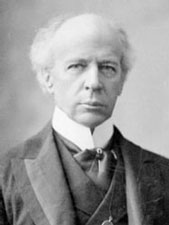“Sunny ways my friends, sunny ways, this is what positive politics can do.”
—Prime Minister-elect Justin Trudeau
Mr. Toby Barrett (PC): I’m not batting very well. I haven’t had a motion accepted yet by the government, to my knowledge. Maybe there’s hope.
Mr. Chris Ballard (Lib): There are 121 or more, or something like that—
Vice-Chair Mr. Peter Z. Milczyn (Lib):
"Keep pitching them. Sunny days; sunny ways."
Both quotes refer to Sir Wilfrid Laurier's style of governing Canada.
He believed that compromise was a better way of governing than allowing issues to divide Canadians.
—editor

Sir Wilfrid Laurier